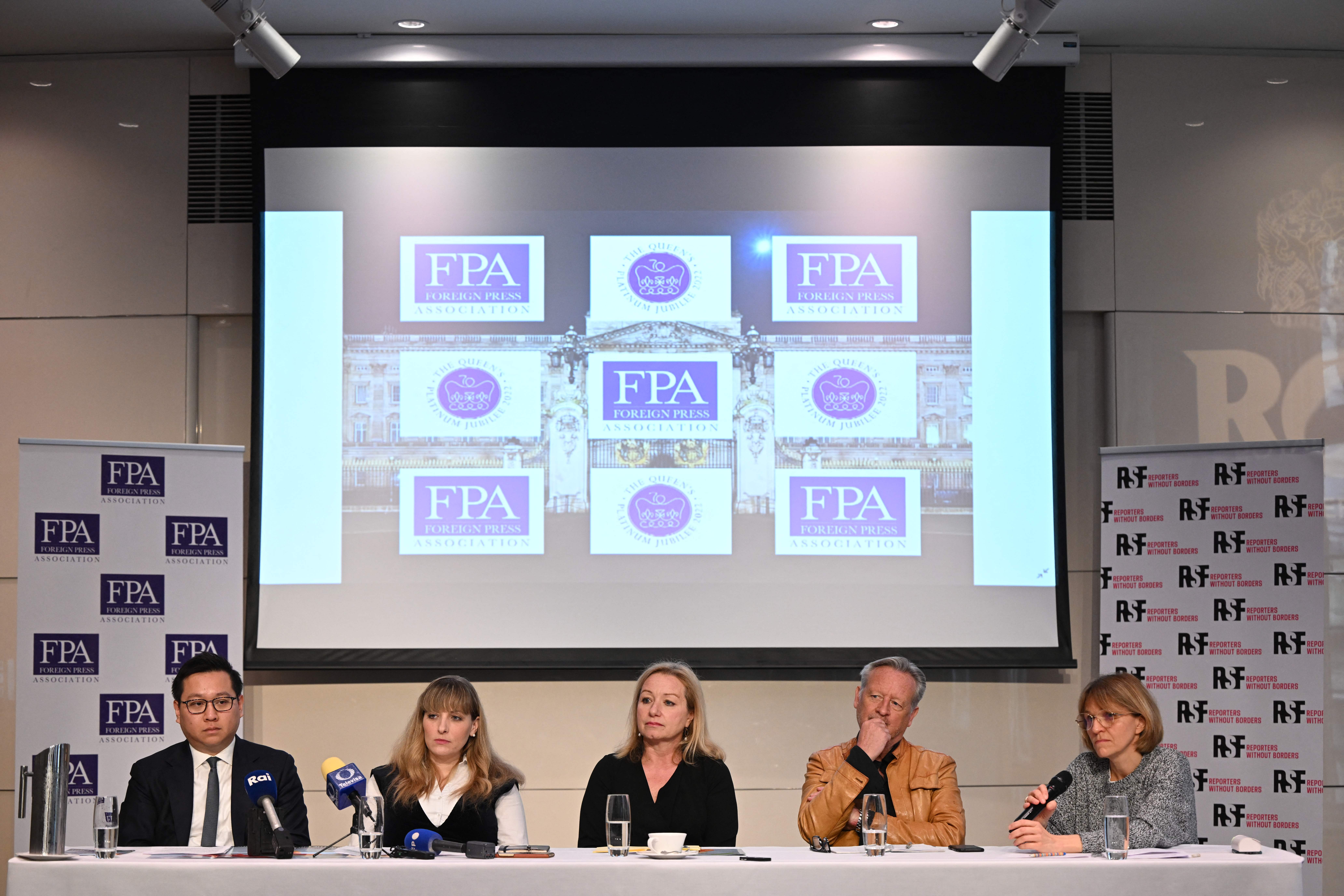Hong Kong plummets in latest press freedom ranking
RSF warns against media polarisation ‘fuelling division within countries’

Your support helps us to tell the story
From reproductive rights to climate change to Big Tech, The Independent is on the ground when the story is developing. Whether it's investigating the financials of Elon Musk's pro-Trump PAC or producing our latest documentary, 'The A Word', which shines a light on the American women fighting for reproductive rights, we know how important it is to parse out the facts from the messaging.
At such a critical moment in US history, we need reporters on the ground. Your donation allows us to keep sending journalists to speak to both sides of the story.
The Independent is trusted by Americans across the entire political spectrum. And unlike many other quality news outlets, we choose not to lock Americans out of our reporting and analysis with paywalls. We believe quality journalism should be available to everyone, paid for by those who can afford it.
Your support makes all the difference.Hong Kong, once a bastion of press freedom, nosedived 68 spots, slipping to 148 in Reporters With Borders’ (RSF’s) latest rankings.
The region, which stood at 80th position in last year’s press freedom ranking has been observing a steady decline since 2020 when Beijing adopted a National Security Law aimed at silencing independent voices, said RSF as the report warned against “a new era of polarisation” in the media.
“The Hong Kong government takes orders directly from Beijing and openly supports its attempts to impose censorship and spread propaganda,” said the report as it highlighted the shutting down of two major independent news outlets, Apple Daily and Stands News.
“Public broadcaster Radio Television Hong Kong (RTHK), previously renowned for its fearless investigations, has been placed under a pro-government management which does not hesitate to censor the programmes it dislikes,” it added.
RSF, which assesses the state of journalism in 180 countries and territories, blamed Hong Kong’s slide on the “ambiguous phrasing” of the National security law that aims to gag anyone in the name of the “fight against terrorism”, “secession”, ”subversion”, and ”collusion with foreign forces”.
"It is the biggest downfall of the year, but it is fully deserved due to the consistent attacks on freedom of the press and the slow disappearance of the rule of law in Hong Kong," Cedric Alviani, head of RSF’s Taiwan-based East Asia bureau, told AFP. "In the past year we have seen a drastic, drastic move against journalists.”
Highlighting “two-fold increase in polarisation amplified by information chaos”, RSF in its report warned that the “media polarisation [is] fuelling division within countries, as well as polarisation between countries at the international level”.
“Within democratic societies, divisions are growing as a result of the spread of opinion media following the ‘Fox News model’ and the spread of disinformation circuits that are amplified by the way social media functions,” it said in the 20th edition of its report.
“Confrontation between ‘blocs’ is growing, as seen between nationalist Narendra Modi’s India and Pakistan,” said RSF noting a slide in India’s position from 142 in 2021 to 150 this year.
“Originally a product of the anti-colonial movement, the Indian press used to be seen as fairly progressive but things changed radically in the mid-2010s, when Narendra Modi became prime minister and engineered a spectacular rapprochement between his party, the [Bharatiya Janata Party], and the big families dominating the media,” it said.
Highlighting the concentration of media ownership in a few hands, the report said: “The prime example is undoubtedly the Reliance Industries group led by Mukesh Ambani, now a personal friend of Modi’s, who owns more than 70 media outlets that are followed by at least 800 million Indians”.
“Very early on, Modi took a critical stance vis-à-vis journalists, seeing them as ‘intermediaries’ polluting the direct relationship between himself and his supporters,” RSF said in the scathing report.
“Indian journalists who are too critical of the government are subjected to all-out harassment and attack campaigns by Modi devotees known as bhakts (devotees).”
While Norway held the top spot in the press freedom index, North Korea replaced Eritrea and slid from 179 spot last year to the bottom of the list.
Join our commenting forum
Join thought-provoking conversations, follow other Independent readers and see their replies
Comments